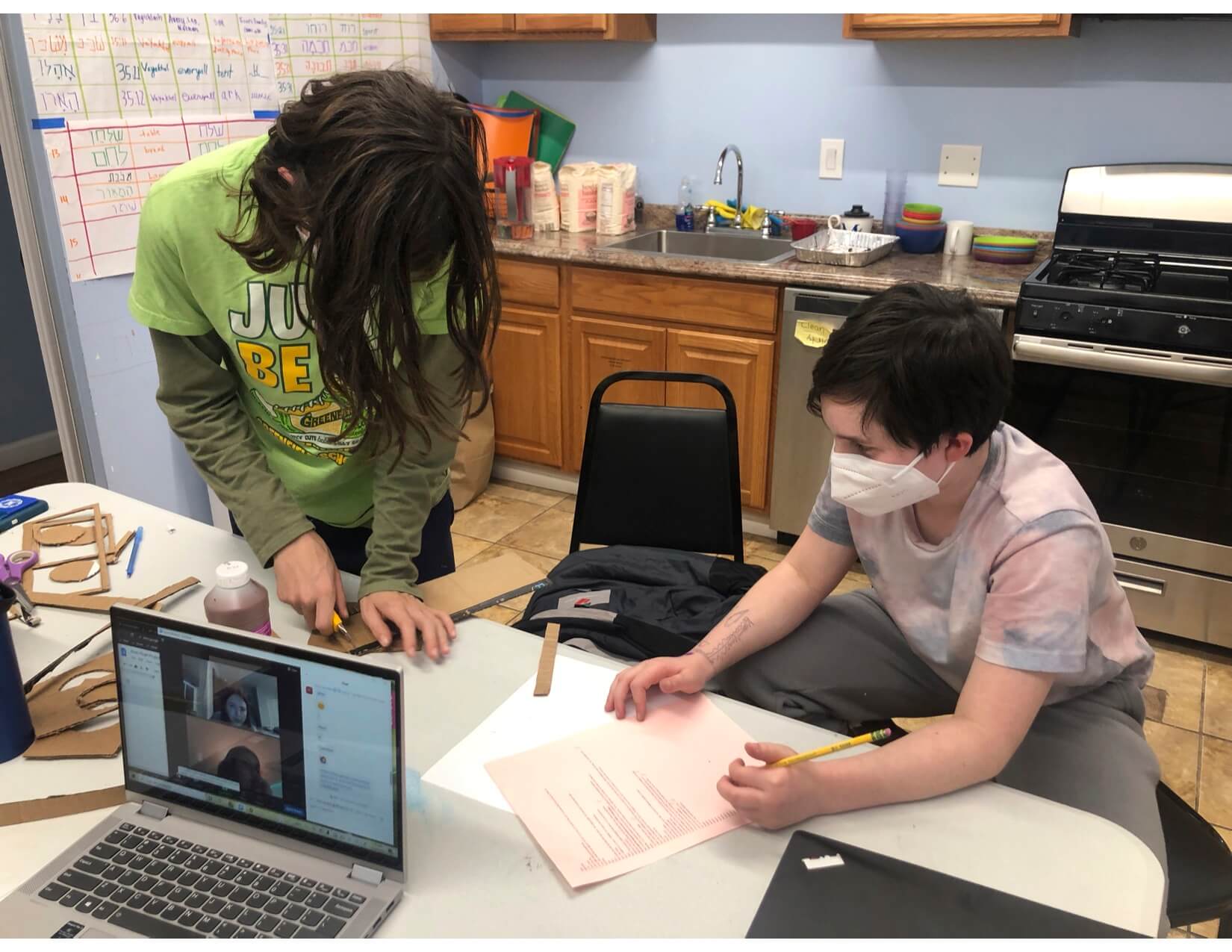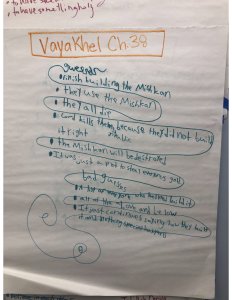
Our learners have been hard at work finishing their Rosh Pinah projects. Today we did a run-through of their presentations for each other, giving feedback and sharing things we liked.
- Wow, it’s amazing how much you learned, and you sounded really confident talking about it.
- I really do feel proud of myself after saying all of that.
- What you built is super cool and impressive!
I certainly had a lot of nakhes (pride) seeing their ideas come to fruition, their ability to follow through, and the pride they took in themselves! We are all looking forward to the presentations on Monday, when they will get to share both their projects and what they love about BMitzvah with the Nitzanim class.
We also concluded studying Vayakhel. Before beginning the final chapter, we took some time to predict what it was about- would it be more of the same recitation of fine details about the materials used to build the mishkan? Or be the story of a grand celebration because they finished? Some other ideas were:
- God kills them because they did not build the mishkan correctly.
- The mishkan will be destroyed.
- It was just a plot so God could take all of their gold.
- The whole chapter will be a list of the names of everyone who helped build it.
- It just continues saying how they built it and nothing special happens.

While some of these ideas seem like just goofy, far-fetched storylines, it shows how much our learners understand about the nature of Torah. Time and again God acts in sometimes unexpected ways. Time and again, entire chapters contain only a list of names for a specific reason. It was a fun and engaging way to prepare for the final chapter. Can you guess which idea was right? Yup, it was the last one! More details about how they built the mishkan. When the parsha ended at verse 20 (the chapter continues to verse 29), with the verse “All the pegs of the Tabernacle and of the enclosure round about were of copper.” everyone asked:
- Is that really the ending?
- Why does it just stop there?
- That is so anticlimactic.
And we learned that sometimes, that is how the Torah does it.

